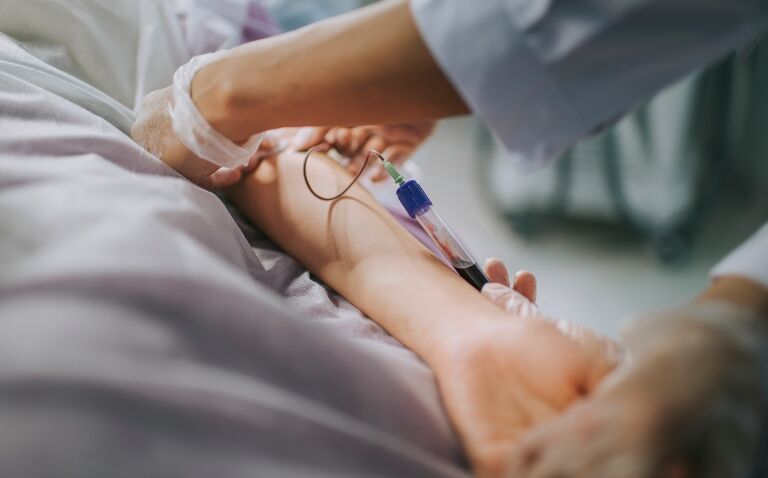A clinical trial at Amsterdam UMC is aiming to show that an artificial intelligence (AI) algorithm can reduce the number of blood cultures taken in emergency departments (EDs) worldwide by almost a third.
The algorithm takes data from the electronic health record of patients with suspected sepsis, such as body temperature and other standard lab results that provide information about possible infections, to identify patients with a low risk of infection or inflammation.
The clinician uses this prediction, together with their own observation, to then consider whether a blood culture is required.
Dr Prabath Nanayakkara, professor of internal medicine at Amsterdam UMC, whose work focuses on increasing efficiency in acute care, said: ‘Of all the blood cultures that are done in the emergency room, only 15% indicate that something is wrong, and it’s even more interesting if you take a closer look at those positive results. Then about half of the positive blood cultures turn out to be false positives. We’re used to doing it this way but that doesn’t mean the analysis is necessary. Certainly not when you look at the numbers.’
The new clinical trial – known as the ABC study – will test the algorithm in practice and is one of the first randomised controlled trials worldwide to consider such an algorithm in acute care.
It was previously developed by Amsterdam UMC’s acute AI team and extensively tested and validated nationally and internationally, the team said.
The AI’s prediction is now built into the electronic patient record at Amsterdam UMC, so the healthcare provider is shown this prediction on the computer screen when requesting a blood culture in the intervention group, which the researchers say is a ‘unique’ approach.
‘With tailor-made advice for each patient, we expect to drastically reduce unnecessary cultures, hopefully by up to 30%,’ said Professor Nanayakkara.
‘If this study is successful, we will not only reduce the number of blood cultures – and therefore the costs – but also ensure that the number of false positive blood tests decreases and thus, no patients will be treated unnecessarily.
‘False positive results lead to uncertainty among patients and doctors, extra procedures, excessive treatment with antibiotics and, longer hospital admissions and even higher mortality in that group.’
He added: ‘We shouldn’t do things in healthcare that aren’t necessary [and] this is pre-eminently an issue in which AI can be used. In doing so, we are showing that AI can really change healthcare.’
In October 2023, a study presented at the European Society of Emergency Medicine congress led to calls for increased sepsis awareness as two of the four internationally recommended sepsis screening tools used by emergency medical services were deemed inadequate for recognising the condition.
And in February 2024, updated guidance from the National Institute for Health and Care Excellence on identifying and managing sepsis in over-16s recommended better targeting of antibiotics for suspected sepsis.










